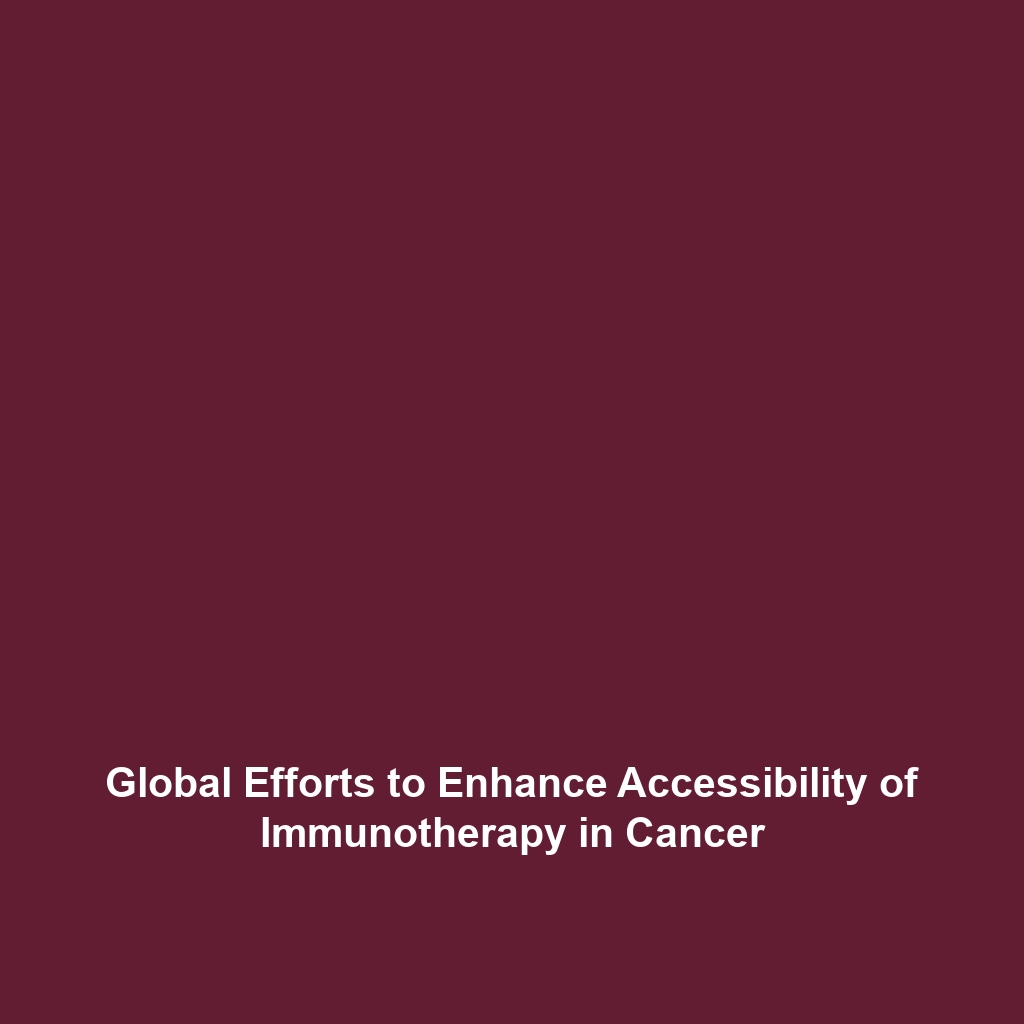Efforts to Make Immunotherapy More Accessible Globally
Introduction
Immunotherapy is revolutionizing cancer treatment, harnessing the body’s own immune system to target and destroy cancer cells. However, the global landscape of immunotherapy access presents challenges that limit its potential. Efforts to make immunotherapy more accessible globally are crucial to ensuring that patients in every region can benefit from these innovative treatments. This article delves into the significance of these efforts within the broader context of immunotherapy and cancer.
Key Concepts
Understanding the major concepts that underpin the efforts to improve global access to immunotherapy is vital for grasping its significance in the field of cancer treatment. Key elements include:
- Cost Reduction: High cost remains a barrier; strategies to subsidize or reduce the price of immunotherapies are essential.
- Global Collaboration: Partnerships between governments, NGOs, and pharmaceutical companies can enhance access, sharing knowledge and resources.
- Regulatory Frameworks: Streamlining approval processes in various countries can help introduce immunotherapy more quickly to diverse populations.
Applications and Real-World Uses
The efforts to make immunotherapy more accessible globally have manifested in various practical applications:
- Community Health Initiatives: Programs aimed at educating healthcare providers about immunotherapy have improved awareness and treatment options in underserved areas.
- Mobile Clinics: The use of mobile medical units equipped to provide immunotherapy has reached remote populations, showcasing how this innovative care model can combat accessibility issues.
- Telemedicine: Through telehealth platforms, patients can consult specialists for immunotherapy, effectively bridging physical barriers.
Current Challenges
Despite substantial efforts, several challenges affect the accessibility of immunotherapy globally:
- Financial Burden: The high cost of cutting-edge treatments often excludes low-income populations from receiving necessary care.
- Unequal Healthcare Systems: Variability in health infrastructure among countries can lead to disparities in treatment availability.
- Awareness and Education: Lack of understanding about immunotherapy among both healthcare professionals and patients contributes to fewer referrals and treatment uptake.
Future Research and Innovations
Future research and innovations hold promise for increasing the accessibility of immunotherapy on a global scale. Initiatives include:
- Next-Generation Therapies: Development of off-the-shelf immunotherapies that lower costs and improve delivery mechanisms.
- Artificial Intelligence: Utilizing AI for personalized treatment plans that can optimize immunotherapy outcomes efficiently.
- Global Training Programs: Initiatives designed to educate healthcare workers in low-resource settings on administering immunotherapy.
Conclusion
Efforts to make immunotherapy more accessible globally are a critical aspect of advancing cancer treatment and ensuring equitable healthcare. As research and initiatives progress, it is essential for stakeholders to collaborate and eliminate barriers to access. For more information on immunotherapy advancements and their impact on cancer care, visit our related articles on current trends in immunotherapy and affordable cancer treatments.
